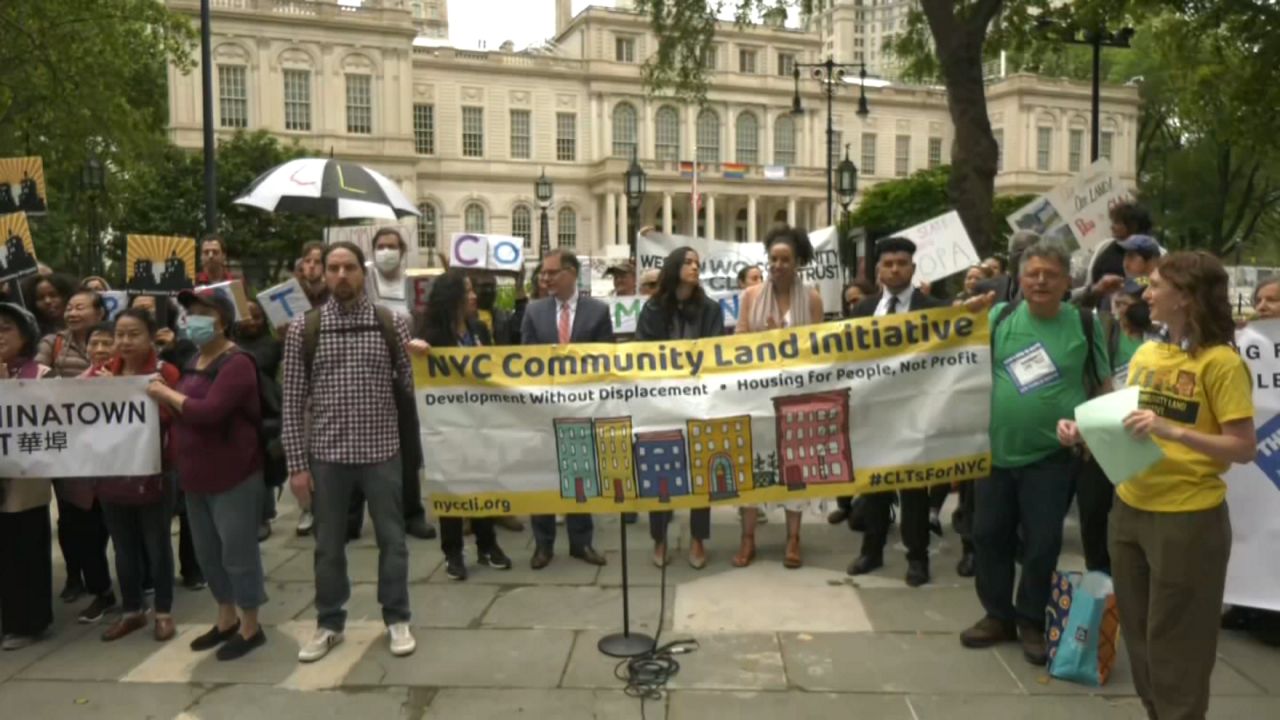In response to the ongoing housing crisis and recent rent increases for rent-stabilized housing, tenants, activists, and elected officials are urging the city council to pass a package of laws aimed at improving access to permanent affordable housing. One of these laws would specifically benefit Cathy Mercado, a resident of East Brooklyn, by helping her become the owner of her apartment.
Mercado expressed her desire to remain a part of her community and emphasized the importance of homeownership in achieving that goal. She believes that owning a home is the only way for residents to continue living in their community. This sentiment is shared by many others who are advocating for the passage of the “NYC Community Land Act” or the Law of Community Lands, a package of four pieces of legislation designed to expand affordable housing in Black and Latino neighborhoods.
The primary objective of this legislation is to ensure that eligible non-profit organizations are notified of building sales and given the opportunity to submit the first purchase offer. By giving priority to non-profit organizations over private investors, the aim is to increase the availability of permanent affordable housing. However, this aspect of the legislation has faced opposition from some private companies owned by Afro-Americans, Latinos, and people of color, who argue that it unfairly favors non-profits.
Another bill included in the package calls on the state government to enact laws granting tenants the right to collectively purchase their buildings when the owner decides to sell. Councilwoman Pierina Sánchez, a strong supporter of the legislation, believes that this measure is crucial in empowering Latinos and African Americans to take ownership of their homes.
Additionally, the package includes a proposal to eliminate the “NYC Lien Sale,” which would prevent the city from selling tax, water, and sewer debts to private entities. This practice can lead to foreclosure proceedings if the debts are not paid. By eliminating this sale, the legislation aims to protect homeowners from losing their properties due to financial difficulties.
Furthermore, advocates are urging the city council to allocate $3 million in the 2024 budget to support 20 nonprofit organizations that advocate for the right to permanent affordable housing. This financial support would help these organizations continue their important work in the community.
Councilwoman Sanchez clarified that the package of laws is still in its early stages and will need to go through the vote of the housing committee of the municipal council. However, the proposed legislation has already garnered significant attention and support from tenants, activists, and elected officials who are determined to address the housing crisis and make affordable housing more accessible to all residents.
How would the proposed legislation of the NYC Community Land Act prioritize the preservation of affordable housing in the face of potential sale or transfer of rent-stabilized properties?
Of any potential sale or transfer of a rent-stabilized property. This would give these organizations the opportunity to purchase the property and convert it into permanent affordable housing. Currently, many rent-stabilized buildings are being sold to private developers who then raise rents or convert the units into market-rate housing, effectively pushing out long-term residents.
The Law of Community Lands would also establish a right of first refusal for eligible non-profit organizations. This means that if a rent-stabilized property is up for sale, these organizations would have the first opportunity to purchase it at a fair price before it is offered to private buyers. This would help ensure that affordable housing remains in the hands of organizations committed to providing long-term affordable housing options.
Additionally, the legislation includes provisions for the creation of community land trusts, which would allow homeowners like Cathy Mercado to purchase their apartments and be part of a communal ownership model. Community land trusts are nonprofit organizations that own and manage land for the benefit of the community. This model allows residents to have permanent affordable housing while also participating in decision-making processes regarding the property.
The proposed package of laws has received widespread support from tenant rights advocates, community organizations, and elected officials who recognize the urgency of addressing the city’s housing crisis. By expanding access to permanent affordable housing and preventing the displacement of long-term residents, these laws would help stabilize neighborhoods and promote community ownership.
In conclusion, the NYC Community Land Act offers a promising solution to the ongoing housing crisis and rising rent costs for rent-stabilized housing. By prioritizing the preservation of affordable housing and empowering residents like Cathy Mercado to become homeowners, this legislation aims to create more opportunities for individuals and families to remain in their communities and thrive. The passage of these laws would be a significant step towards a more just and equitable housing system in New York City.



This is a crucial step towards addressing the affordable housing crisis in NYC. The Community Land Act could be a game changer in creating more opportunities for low-income residents to secure affordable housing. Exciting times ahead!
This article highlights the NYC Community Land Act’s commendable objective of increasing affordable housing options. By advocating for change, this initiative has the potential to alleviate the housing crisis in the city and foster a more equitable living environment for its residents.